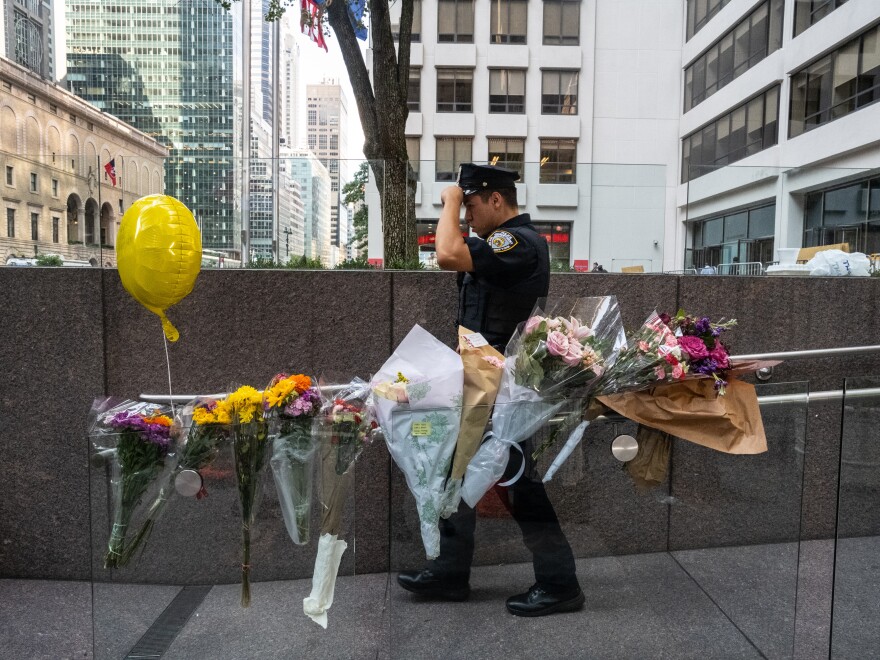Updated @ 4:23 PM EDT on August 8, 2025
A plan for the military to intensify the conflict in Gaza and seize control of Gaza City, one of the few remaining parts of the territory not yet completely occupied by the military, was approved by Israel’s Security Cabinet early Friday.
In Israel, the Security Cabinet meeting lasted long into the night and ended with a plan for the military to eventually take over the entire country.
About 22 months into the conflict, the Prime Minister’s Office made the revelation. According to Gaza’s Health Ministry, Israeli airstrikes and attacks have killed at least 61,000 Palestinians, a third of whom were youngsters.
The main hub of Gaza, Gaza City, has been mainly damaged by airstrikes and raids during the conflict. Tens of thousands of displaced Palestinians have set up tent encampments there, and it is also home to a church where Gaza’s minority Christians are seeking refuge, as well as some of the few partially operational hospitals in the region.
Although the United Nations reports that approximately 90% of Gaza is already under military control or off-limits to Palestinians and designated as a red zone, Israeli Prime Minister Benjamin Netanyahu’s office refrained from calling the takeover of Gaza City an occupation. The only locations that Israeli ground forces have not yet taken control of are Gaza City, portions of central Gaza, and a strip of sand along the sea.
Under the shadow of almost constant bombardment, Israeli troops are already present in eastern Gaza City. It’s unclear how the military intends to advance farther into populated areas or where people may have to evacuate due to what U.N.-backed experts claim is a famine that is spreading throughout the region.
Netanyahu’s administration made the announcement without providing any further details, stating that relief would be sent to civilians outside of war zones.
Hamas claimed in a statement that Israel’s occupation of Gaza City “will cost it a heavy price and not be a walk in the park.”
“Our people and their resistance are resilient to defeat or surrender, and Netanyahu’s plans, ambitions, and illusions will fail miserably,” the statement continues.
Fearing that military actions could result in their deaths, the families of Israeli hostages currently being held by militants in Gaza are calling for a ceasefire.
This week, Einav Zangauker, whose son Matan is in captivity, said that Netanyahu had assured her he would reach an agreement to halt the conflict and release the captives.
“But he exploited my pain, the pain of the families of this wounded nation he sabotaged the deal,” she continued. “He lied to me he lied to all of us!”
The decision was denounced by Israeli opposition leader Yair Lapid as a “disaster that will lead to many more disasters.”
“This is exactly what Hamas wanted: for Israel to get stuck on the ground without a goal, without defining the vision for the day after, in a futile occupation that no one understands where it leads,” he stated in a statement.
Although there are differing views in Israel over ending the war, tens of thousands of Israelis demonstrated for a ceasefire in Tel Aviv this week. Additionally, President Trump received an open letter from hundreds of former Israeli generals and security officials pleading with him to cease the war and the suffering. They claimed that following the group’s fatal strike on October 7, 2023, Hamas no longer presents a strategic threat to Israel.
However, Netanyahu has also rejected growing international pressure to halt the conflict and significantly increase aid to Gaza.
In response to a question this week regarding potential Israeli plans to militarily occupy Gaza, Trump stated that the choice was “pretty much up to Israel.”
Before Israel ends the war, the Security Cabinet, which is made up of Israel’s top leaders, agreed on five goals: disarming Hamas, freeing all 50 hostages—less than half of whom are thought to be alive—demilitarizing Gaza, establishing a civil administration that is not Hamas or the Palestinian Authority, and demilitarizing Gaza.
The Security Cabinet’s statement lacked specifics about how a civil administration would be established, its function, and its leadership, as well as what Israeli security control in Gaza would need to look like in order for Israel to halt the war.
According to the Prime Minister’s Office, the Security Cabinet, which consists of two far-right ministers who have publicly advocated for the permanent expulsion of Palestinians from Gaza and the reconstruction of Jewish settlements there, rejected a different plan for military operations in Gaza than the one Netanyahu had put forth.
Palestinians react to Israel’s plan
According to Gaza City resident Mahmoud Abdel Salam Ahmed, 38, he is packing his tent and what little food he has in preparation for another escape.
“Since the start of the conflict, I have never heard worse news. We weren’t ready for a war or an operation like this, and the news we got today stunned us all,” he says.
Mohaneb Yahya al-Sahhar, 32, thinks Israel’s upcoming operation would fail because Gazans have already endured hardship. He is speaking at a market in Gaza City.
“Gaza residents have deep ties to their homeland. We no longer care about death,” he declares. “We, as the society of Gaza, have adapted and lived with displacement, with death, with poverty, with all the difficult circumstances that no one else in the world has experienced we have lived them and adapted to them.”
Al-Hanafi, Ali It would be hard to flee again, according to 51-year-old Abu Hassan, who is displaced in Gaza City. Two of his children were slain, and his house was devastated.
“They left us nothing, for crying out loud. Everything was destroyed, including trees, stones, and homes. [Netanyahu] wants us to go where? We will not depart. “The story will end if they simply kill us,” he says. “There is no safe place in the Gaza Strip.”
Mahmoud Abbas, the president of the Palestinian Authority, denounced Israel’s move to occupy Gaza City.
“This is a complete crime that represents a continuation of the policy of genocide, systematic killing, starvation and siege, and a flagrant violation of international humanitarian law and U.N. resolutions,” he stated.
Israel faces international criticism
The Israeli government’s plan to seize control of Gaza City is “wrong,” according to British Prime Minister Keir Starmer, who encouraged the administration to change its mind.
“This action will not help achieve the hostages’ release or put an end to this dispute. He added in a statement, “It will only result in more bloodshed.” “What we need is a ceasefire, a surge in humanitarian aid, the release of all hostages by Hamas and a negotiated solution.”
German Chancellor Friedrich Merz demanded that aid organizations have “comprehensive” access to Gaza and declared that his government would not permit the shipment of military hardware that Israel may employ there.
“The continued suffering of the civilian population in the Gaza Strip continues to be a major concern for the German government. The Israeli government is even more accountable than ever for meeting their requirements in light of the anticipated offensive,” Merz said in a statement.
In a harsh reaction to the arms ban, Netanyahu’s administration said that “Germany is rewarding Hamas terrorism.”
In a statement, Australian Foreign Minister Penny Wong denounced the action.
“Australia calls on Israel to not go down this path, which will only worsen the humanitarian catastrophe in Gaza,” she stated. “A two-state solution is the only pathway to secure an enduring peace a Palestinian state and the State of Israel, living side-by-side in peace and security within internationally-recognised borders.”
The U.N.’s special rapporteur for the West Bank and Gaza, Francesca Albanese, meantime, described the news as “shocking.”
In an interview with the BBC, she said the decision “speaks to the desperation of the Israeli PM,” adding it was “hard to imagine how much harm he [Netanyahu] can do because they [Gazans] are beyond the brink of collapse.”
Volker T rk, the U.N. high commissioner for human rights, called for the plan to be “immediately halted,” adding that it runs contrary to rulings made by the International Court of Justice about Israeli occupation of Palestinian territories, including Gaza.
The U.N. Security Council should stop Israel’s action since it violates international law, according to Turkey’s Foreign Ministry.
“We call on the international community to fulfill its responsibilities to prevent the implementation of this plan, which seeks to render Gaza uninhabitable and forcibly displace the Palestinian people from their own lands,” the ministry stated in a statement.
This report was written from Gaza City by Anas Baba.
Copyright 2025 NPR






